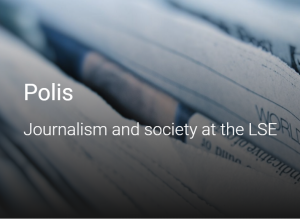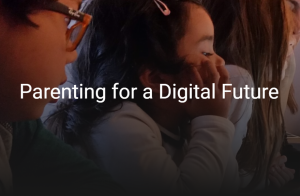BBC Trust: Review of the BBC’s arrangements for the supply of television and radio content and online services
Start: 22 January 2015
Close: 20 March 2015
The BBC Trust launched a review and public consultation looking at the way that BBC programmes and content are supplied to the BBC by either independent production companies or BBC in-house production. The review is a response to significant structural changes and consolidation in the independent production sector in recent years, and proposals set out by the BBC’s Director General Tony Hall in July 2014 to open up the content supply system to more competition.
In its public consultation, the Trust is seeking views from the industry and those interested in the supply of content to the BBC, on whether the six draft principles under which BBC content supply would operate in future are the right principles; how far the current arrangements deliver on them and whether this is likely to change; how the principles can best be fulfilled over the next ten years; and whether any programme genres or types of content justify a different approach.
Responses to this consultation can submitted via email to trustcontentsupply@bbc.co.uk or via post to BBC Trust, 180 Great Portland Street, London W1W 5QZ.
The Press Recognition Panel: Consultation covering four further interim as well as proposed policies and procedures (second of the Panel’s consultations)
Start: 13 January 2015
Close: 27 March 2015
The Press Recognition Panel (created on 3rd of November 2014 by Royal Charter in the light of the Leveson Report) is inviting comments from all individuals and organisations – including media organisations, campaign groups, and public bodies – on its second consultation which covers further interim as well as proposed policies and procedures.
The Panel invites comments on its gifts and hospitality policy, its complaints handling policy (for complaints about an individual at the Press Recognition Panel), its Welsh language scheme, and its political activity policy.
Comments on agreement or disagreement with these policies can be submitted via email to: contact@pressrecognitionpanel.org.uk. In case of disagreement, please provide constructive feedback on how things should be done differently.
European Commission: Public consultation on the Lamy Report about the future use of the UHF TV broadcasting band
Start: 12 January 2015
Close: 12 April 2015
The European Commission is seeking views on the Lamy report by mobile and broadcasting sectors, academics with relevant areas of expertise, and citizens, users of TV and/or wireless broadband services, as well as users’ associations. This report provides strategic recommendations on a long-term policy strategy for the future use of the UHF band (470-790 MHz):
The UHF TV broadcasting band (470-790 MHz) is currently used across the EU for digital terrestrial television (mostly received via rooftop antennas and free-to-air) and wireless audio equipment. Meanwhile, these frequencies are becoming particularly appropriate to provide wireless broadband at higher speeds and with better geographical coverage. The broadband and telecoms sectors are both keen to secure the future use of this highly sought-after band for deploying new wireless and digital services.
Responses to this consultation can be made online, or sent via email or post.
Department for Culture, Media & Sport (DCMS): Public Consultation on Reforming the Electronic Communications Code
Start: 26 February 2015
Close: 30 April 2015
The Department for Culture, Media & Sport (DCMS) is inviting views on the reform of the Electronic Communications Code. This Code regulates the relationship between electronic communications network operators (known as “Code operators”) and site providers. It provides the legal framework for the rollout and maintenance of the physical networks of apparatus that support the provision of electronic communications services throughout the United Kingdom.
Since the enactment of the Code in 1984, the telecommunications sector has changed almost beyond recognition. Due to the proliferation of digital services, the huge growth in customer demand, and the wide-ranging and increasingly important role that telecommunications plays in all areas of our economy and society, the existing Code is out-of-date, and lacks the clarity to inform the agreements between Code operators and site providers that enable and sustain networks.
DCMS particularly seeks views from those who use and are affected by the Electronic Communications Code. This consultation is likely to be of particular interest to electronic communication network operators and those who provide sites for electronic communications apparatus. Responses to this consultation can be submitted via email and post.
Department for Culture, Media & Sport (DCMS): Consultation on TV Licence Enforcement
Start: 12 February 2015
Close: 01 May 2015, 11:00pm
The Department for Culture, Media & Sport (DCMS) is inviting views and calling for evidence on whether the current sanctions in place for failure to hold a TV licence are appropriate, fair, and represent value for money. In its consultation document, DCMS identifies several options for amending the current enforcement regime, including those for decriminalisation of TV licence evasion offences.
DCMS aims at assessing whether these options would represent an improvement. When responding to this consultation, please explain your reasoning for your preferred option, referring where relevant/possible to any evidence that may support this, particularly any evidence that could help make an assessment of the competitive and commercial impact of each option. DCMS also welcomes any additional wider views relevant to the issues raised in this consultation.
Ofcom: Consultation on measurement framework for media plurality
Start: 11 March 2015
Close: 20 May 2015, 05:00pm
Ofcom is inviting stakeholders’ views on its document ‘measurement framework for media plurality‘ and the indicators included in the document. Ofcom had been asked by the Secretary of State (Culture, Media and Sport) to develop a measurement framework for media plurality. This document sets out Ofcom’s proposed framework, and gives the background on how Ofcom developed it, based on work Ofcom has done in the past, and on the Secretary of State’s request.
In this consultation, Ofcom defines plurality “with reference to the following desired outcomes of a plural market: ensuring that there is a diversity of viewpoints available, and consumed, across and within media enterprises; and preventing any one media owner, or voice, having too much influence over public opinion and the political agenda.”
Ofcom is particularly interested in receiving suggestions for improvement or additions to the framework. Responses to this consultation can me made with the help of an online form, via email, or via post.




